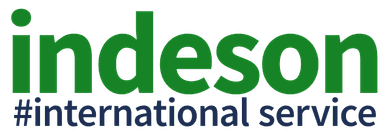Education ManagementSystem Services
Empower Your Educational Institution with our Comprehensive EMS Solutions
Education Management Systems (EMS) represent comprehensive digital platforms that transform institutional operations through integrated student information systems, academic program management, and data-driven decision-making capabilities. Our specialized EMS development services provide educational institutions, ministries of education, and development organizations with sophisticated technology solutions that streamline administrative processes, enhance educational quality, and support evidence-based institutional management across all levels of educational service delivery.
Contemporary EMS architectures serve as the technological backbone for modern educational institutions, enabling administrators, faculty, and educational leaders to manage complex operational requirements including student lifecycle management, curriculum administration, assessment coordination, and institutional performance monitoring. Our EMS development approach integrates cutting-edge educational technologies with pedagogically sound design principles, ensuring that systems enhance rather than complicate educational processes while providing robust analytical capabilities for continuous improvement.
Through systematic application of international best practices in educational technology, user experience design, and institutional management, we deliver EMS solutions that transform organizational capacity for academic excellence, operational efficiency, and stakeholder engagement. Our systems support diverse educational contexts, accommodate multiple languages and curricula, and provide flexible reporting mechanisms that enable evidence-based educational management and strategic planning across institutional hierarchies.
Strategic implementation of comprehensive Education Management Systems provides fundamental capabilities for institutional excellence, educational quality assurance, and sustainable performance improvement. In the context of modern educational institutions and TVET providers, sophisticated EMS platforms serve multiple critical functions that directly impact educational outcomes and institutional effectiveness:
Streamlined Operations and Administrative Efficiency
Advanced EMS platforms automate routine administrative tasks including student enrollment, attendance tracking, grade management, and scheduling, enabling educational leaders and faculty to focus on core educational activities. Through intelligent workflow automation and integrated process management, EMS systems eliminate manual bottlenecks, reduce administrative errors, and enhance operational efficiency while ensuring compliance with educational standards and regulatory requirements.
Comprehensive Data Management and Academic Analytics
Sophisticated EMS solutions provide centralized data repositories that consolidate student information, academic records, performance metrics, and institutional data into unified platforms accessible to authorized stakeholders. Advanced analytics capabilities enable educational leaders to identify learning trends, monitor student progress, evaluate program effectiveness, and implement data-driven interventions that enhance educational outcomes and institutional performance.
Evidence-Based Decision-Making and Strategic Planning
Integrated reporting and analytics modules within EMS platforms transform operational data into actionable intelligence that supports informed decision-making at all institutional levels. Real-time dashboards, predictive analytics, and comprehensive reporting mechanisms enable educational leaders to identify performance patterns, anticipate challenges, and implement strategic interventions based on comprehensive data analysis and educational research evidence.
Enhanced Communication and Stakeholder Engagement
Modern EMS platforms facilitate seamless communication and collaboration between educational institutions, faculty, students, parents, and community stakeholders through integrated communication modules, parent portals, and mobile applications. These capabilities improve transparency, enhance stakeholder engagement, and create supportive educational ecosystems that promote student success and institutional accountability.
Institutional Efficiency and Cost-Effectiveness
Comprehensive EMS implementation provides measurable returns on investment through reduced administrative overhead, improved resource utilization, and enhanced operational efficiency. Automated processes, digital record-keeping, and streamlined workflows generate significant cost savings while improving service delivery quality and institutional capacity for growth and development.
Scalable and Adaptive Technology Infrastructure
Professional EMS solutions provide flexible, scalable technology architectures that accommodate institutional growth, changing educational requirements, and evolving technological standards. Cloud-based deployments, modular system designs, and API integrations ensure that EMS platforms can adapt to institutional needs while maintaining performance, security, and reliability standards essential for educational environments.
Quality Assurance and Regulatory Compliance
Integrated quality management features within EMS platforms support accreditation processes, regulatory compliance, and educational quality assurance through automated documentation, audit trails, and compliance reporting. These capabilities ensure that institutions maintain educational standards while demonstrating accountability to oversight bodies, development partners, and educational stakeholders.
The absence of comprehensive, well-designed Education Management Systems creates systemic challenges that undermine educational quality, compromise institutional efficiency, and limit organizational development potential:
Administrative Inefficiency and Resource Waste
Without integrated EMS platforms, educational institutions rely on manual processes, paper-based record-keeping, and fragmented systems that create administrative bottlenecks, increase error rates, and consume valuable human resources. This results in inefficient resource allocation, increased operational costs, and reduced capacity for educational innovation and improvement initiatives.
Limited Data Access and Decision-Making Challenges
The absence of comprehensive data management systems prevents educational leaders from accessing timely, accurate information about student performance, institutional effectiveness, and operational metrics. This creates decision-making challenges, limits strategic planning capacity, and prevents implementation of evidence-based interventions that could improve educational outcomes and institutional performance.
Communication Barriers and Stakeholder Disconnection
Without integrated communication platforms, educational institutions struggle to maintain effective dialogue with students, parents, faculty, and community stakeholders. This creates information gaps, reduces transparency, and limits stakeholder engagement, ultimately compromising educational quality and institutional accountability.
Quality Assurance Deficits and Compliance Challenges
Manual quality management processes and fragmented documentation systems make it difficult for institutions to maintain educational standards, demonstrate compliance with regulatory requirements, and provide evidence of educational effectiveness to accreditation bodies and oversight agencies.
Limited Scalability and Institutional Growth Constraints
Paper-based systems and manual processes create scalability limitations that prevent institutional growth, program expansion, and service improvement. These constraints limit institutional capacity to respond to changing educational demands and development opportunities while maintaining service quality and operational efficiency.
Student Experience and Academic Performance Impacts
Inefficient administrative systems create negative student experiences through delayed services, information gaps, and administrative barriers. This impacts student satisfaction, academic performance, and retention rates while limiting institutional reputation and competitiveness in educational markets.
Education Management Systems (EMS) and Management Information Systems (MIS) represent complementary but distinct technological approaches to institutional management and operational optimization. EMS platforms focus specifically on educational operations including student information systems, academic program management, curriculum administration, and educational quality assurance, while MIS solutions provide comprehensive organizational management capabilities that support decision-making, financial management, human resources, and operational control across diverse institutional contexts.
Strategic system integration requires careful analysis of institutional needs, educational priorities, and operational requirements to ensure optimal technology investment and maximum educational benefit. Educational institutions often benefit from integrated approaches that combine EMS and MIS capabilities, providing comprehensive management support while maintaining specialized functionality for educational service delivery and academic program administration.
Our system development approach recognizes the interconnected nature of educational and organizational management functions, providing integration strategies that enable seamless data flow between EMS and MIS platforms while maintaining system efficiency and user experience quality. This integrated approach ensures that educational leaders have access to comprehensive operational intelligence while specialized users maintain access to domain-specific functionality required for effective educational service delivery and institutional management.
Student Information System Development and Implementation
We design and implement comprehensive student information systems that manage the complete student lifecycle from enrollment through graduation. Our SIS solutions include admission management, academic record-keeping, grade management, attendance tracking, and transcript generation capabilities that provide reliable foundations for academic administration and student service delivery.
Academic Program Management and Curriculum Administration
Our academic management services create sophisticated platforms for curriculum development, course scheduling, program administration, and academic quality assurance. We develop integrated systems that support competency-based education, outcome-based assessment, and continuous curriculum improvement processes essential for modern educational institutions.
Learning Management System Integration and Digital Education
We provide comprehensive LMS integration services that connect education management platforms with digital learning environments, enabling blended learning approaches, online assessment capabilities, and digital resource management. Our integration solutions support modern pedagogical approaches while maintaining seamless user experiences across educational technologies.
Financial Management and Resource Planning Systems
Our financial management modules provide educational institutions with comprehensive budgeting, fee management, scholarship administration, and financial reporting capabilities. These systems integrate with academic operations to provide cost-per-student analysis, program profitability assessment, and resource optimization insights essential for institutional sustainability.
Analytics and Business Intelligence for Educational Institutions
We develop advanced analytics platforms that transform educational data into actionable insights for institutional improvement. Our business intelligence services include student performance analytics, program effectiveness assessment, predictive modeling, and dashboard development that enable data-driven decision-making and continuous institutional enhancement.
Mobile Applications and Parent Portal Development
Our mobile development services create user-friendly applications and web portals that enhance stakeholder engagement and improve communication between institutions, students, parents, and faculty. These platforms provide real-time access to academic information, attendance data, assessment results, and institutional communications.
System Migration and Legacy Integration Services
We provide comprehensive system migration services that transition institutions from legacy systems to modern EMS platforms while preserving data integrity and maintaining operational continuity. Our migration approach includes data conversion, user training, change management, and ongoing support that ensures successful system adoption and sustained institutional benefit.

